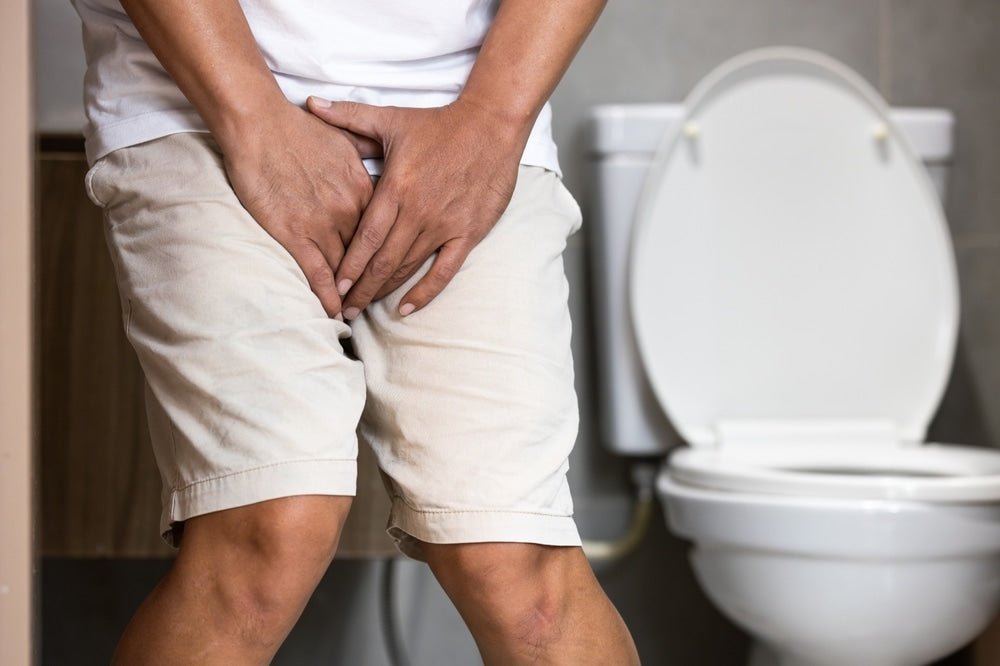Incontinence is a sensitive topic that affects millions of individuals worldwide, and while it is commonly associated with aging, it can impact people of all ages.
Specifically, male incontinence is often under-discussed, leading many to feel embarrassed or hesitant to seek the help they need. However, managing male incontinence is crucial for overall health and well-being.
In this blog, we will explore the significance of recognizing, understanding, and properly managing incontinence to help improve quality of life and prevent potential complications.
What Is Male Incontinence?
Male incontinence refers to the involuntary leakage of urine, a condition that can vary in severity from occasional dribbling to complete loss of bladder control.

This issue can stem from a variety of causes, including weakened pelvic floor muscles, prostate problems, or nerve damage.
While many people associate incontinence with older adults, younger men can also experience this condition due to factors such as surgery, injury, or certain medical conditions.
It is important to recognize that incontinence is not a single condition but a symptom of an underlying issue. Understanding the root cause is vital to managing the condition and ensuring the best possible outcome.
The Physical and Emotional Impact of Male Incontinence
The impact of male incontinence extends far beyond physical discomfort. While the immediate concern may be the practical aspects of managing leaks, the emotional toll it takes can be just as significant.
Men who struggle with incontinence may experience feelings of embarrassment, frustration, and a loss of self-esteem. They might avoid social situations or withdraw from activities they once enjoyed, fearing accidents or unpleasant odours.
When incontinence is left unmanaged, physical health is also compromised. Men with this condition may alter their daily routines to avoid drinking too much water or may begin to limit their activity levels. Poor bladder habits can lead to dehydration, muscle weakness, and even the development of urinary tract infections (UTIs).
The emotional and physical effects of incontinence often intersect, making it even more important to take action toward managing the condition. Seeking treatment and support for male incontinence can provide immense relief and improve the overall quality of life.
Managing Incontinence for Better Health
Various strategies are available to manage incontinence effectively. Each approach depends on the underlying cause of the condition, but early intervention is key to preventing more severe complications in the future.
Lifestyle Changes and Bladder Training
Lifestyle changes can often significantly impact managing incontinence. Regularly practicing bladder training techniques can help men regain control over their bladders and reduce the frequency of leaks.
Bladder training involves setting a schedule for urination, gradually increasing the time between bathroom visits, and strengthening the pelvic muscles through exercises like Kegels.
Additionally, maintaining a healthy weight, eating a balanced diet, and staying hydrated can help reduce the strain on the bladder. For some men, avoiding bladder irritants like caffeine, alcohol, and spicy foods can help alleviate symptoms.
Medications and Medical Treatment
For men with incontinence due to prostate issues, medications may be prescribed to help manage symptoms. Alpha-blockers and 5-alpha reductase inhibitors are common treatments for men with an enlarged prostate, as these medications can improve urine flow and reduce the urge to urinate frequently.
For cases of overactive bladder, medications that relax the bladder muscles may be prescribed to reduce urgency and frequency. However, medications alone are often not sufficient, and other methods like physical therapy or lifestyle changes are usually necessary to achieve the best results.
Surgical Options and Devices
In cases where conservative measures like lifestyle changes and medications are ineffective, surgical treatments may be considered.
Surgical options such as sling procedures, bladder neck suspension, or artificial urinary sphincters can help men regain control over their bladder and improve their quality of life.
However, surgery is typically a last resort and is considered when other treatments have failed. In addition to surgery, men with incontinence can benefit from the use of incontinence products.
Such as pads, underwear, or external catheters. These devices help manage leakage and prevent accidents, improving comfort and confidence in daily life.
Seeking Professional Help for Incontinence
It's important for men experiencing incontinence to seek professional help. A urologist or other healthcare provider can conduct a thorough evaluation to determine the condition's underlying cause.
From there, they can recommend the most appropriate treatment plan tailored to the individual's needs. At Arcus Med, we understand the challenges of managing male incontinence and are here to help.
Our team of professionals can provide expert guidance on the most effective treatments and offer ongoing support to ensure individuals feel empowered and in control of their health.
Why Early Intervention Matters
One of the most significant reasons for addressing male incontinence early is to prevent long-term complications. Untreated incontinence can lead to a variety of health issues, including skin irritation, urinary tract infections, and kidney problems.
By seeking treatment sooner rather than later, men can avoid these complications and improve their chances of successful treatment. Furthermore, early intervention can reduce the emotional toll of incontinence.
Seeking help from a professional can provide peace of mind, knowing that solutions are available to manage the condition. With proper care, men can regain their confidence and lead fulfilling lives without fearing incontinence affecting their daily activities.
Conclusion
Managing male incontinence is crucial for physical health and emotional and mental well-being. Incontinence can affect every aspect of a person's life, from personal relationships to social activities.
However, with the right treatment and support, men can manage their incontinence effectively and regain control over their health. Arcus Med is committed to providing high-quality care for men experiencing incontinence.
Whether through lifestyle changes, medications, or advanced treatment options, we are here to help you navigate this condition and improve your overall health and well-being.
Don't let incontinence hold you back—contact us today to learn how we can help you manage this common but treatable condition.



Share:
Work Stress and Male Urinary Incontinence: Are They Connected?
How to Use and Maintain Your Afex Male Incontinence System